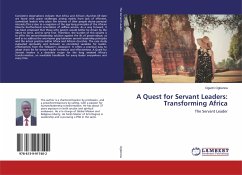This book presents a research that has developed from working experiences with churches and voluntary aid agencies in East Africa. The particular problem explored is that management is narrowly restricted by earmarked funding from many different donors. What happens then is that management structures reflect external strategies and ideas rather than own organisational identity and strategy. Managers become occupied with short term and fragmented project planning due to a strong belief in modern goal rationality and pressure for growth and economic development. This leads to centralisation, institutionalisation and external control which is against common policies of mutual responsiblity local empowerment. A wider understanding of management is recommended, which implies a comprehensive planning and reporting. There is also need for a mutual accountability for all resources available to supporting as well as receiving partners involved in the aid cooperation. This is a book particularly for managers engaged in non-profit organisations which face problematic impact from globalisation, privatisation and business orientation.
Bitte wählen Sie Ihr Anliegen aus.
Rechnungen
Retourenschein anfordern
Bestellstatus
Storno








